Did you know that Bantimurung-Bulusaraung National Park is home to over 250 species of butterflies, earning it the nickname “Kingdom of Butterflies” from the renowned naturalist Alfred Russel Wallace in the 19th century? This stunning natural paradise in South Sulawesi, Indonesia, offers visitors a rare glimpse into one of Southeast Asia’s most diverse ecosystems, where limestone karst formations, cascading waterfalls, and prehistoric cave paintings create an unforgettable adventure destination.
Getting There & Planning Your Journey
Most visitors begin their journey to Bantimurung-Bulusaraung National Park from Makassar, the capital city of South Sulawesi. The park is located approximately 50 kilometers northeast of Makassar, making it an accessible day trip or weekend getaway.
By Air
The nearest airport is Sultan Hasanuddin International Airport (UPG) in Makassar. From there, you’ll need to arrange ground transportation to reach the park.
By Road
From Makassar, you can reach the park in approximately 1-1.5 hours by car or motorbike. The route follows the Poros Maros-Bone road, with clear signage directing you to the park entrance. Many visitors opt to rent a car for flexibility or join a guided tour.
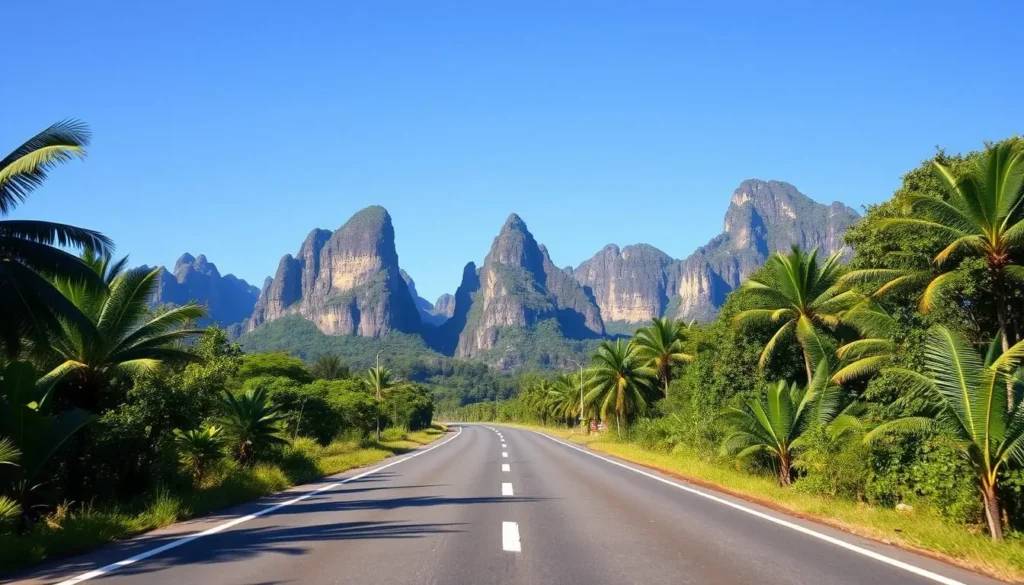
Best Time to Visit & Weather Tips
The park is accessible year-round, but your experience can vary significantly depending on when you visit. South Sulawesi has a tropical climate with distinct wet and dry seasons.
Dry Season (June to September)
This is generally considered the best time to visit. The weather is more predictable with less rainfall, making it ideal for hiking, caving, and butterfly watching. The waterfalls may have less volume but are still impressive.
Wet Season (October to May)
During these months, especially December to February, expect frequent rainfall. While this creates spectacular waterfall displays, some trails may become slippery and certain caves might be inaccessible due to flooding.
Peak Butterfly Season
For butterfly enthusiasts, July to August offers the best opportunity to see the greatest variety and number of butterflies, particularly in the morning hours when they’re most active.
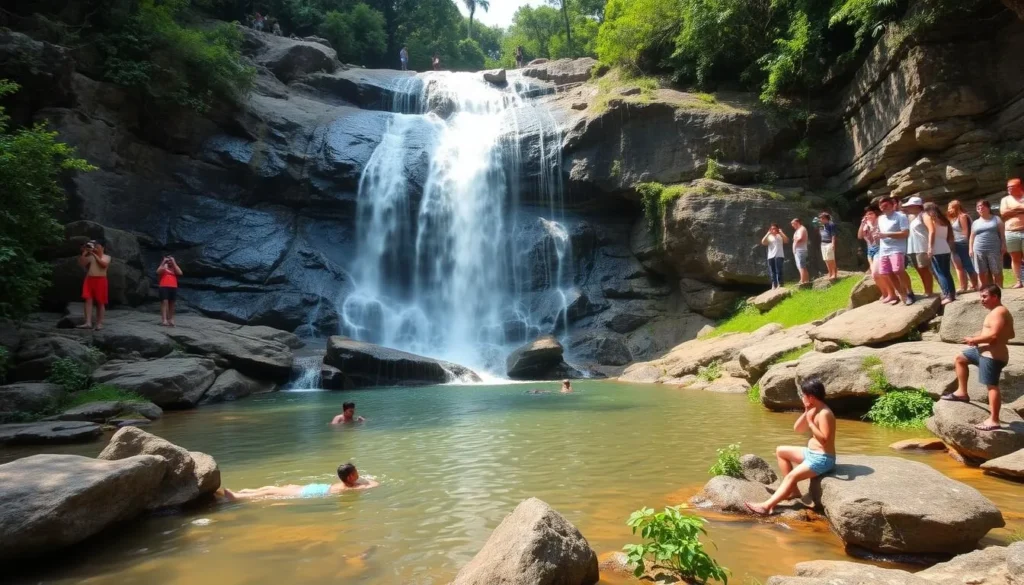
Entrance Fees & Opening Hours
| Visitor Type | Fee (IDR) | Fee (USD Approx.) |
| Domestic Adult | 30,000 | $2 |
| Foreign Adult | 200,000 – 250,000 | $13-16 |
| Camera Fee | Free | Free |
Opening Hours: The park is open 24 hours, but the main attractions like Bantimurung Waterfall area are typically accessible from 7:00 AM to 5:00 PM daily.
Pro Tip: Arrive early (before 9:00 AM) to avoid crowds, especially on weekends and holidays when the park is popular with local visitors.
Where to Stay
While there are no accommodations within the national park itself, you have several options in the surrounding areas:
Makassar City
Most visitors choose to stay in Makassar, which offers a wide range of accommodations from budget hostels to luxury hotels. From here, you can easily arrange a day trip to the park.
- Widest selection of hotels
- 30-45 minute drive to the park
- Good dining options
Maros Town
Staying in Maros puts you closer to the park entrance. While accommodation options are more limited, you’ll find several small hotels and guesthouses catering to park visitors.
- Closer proximity to the park
- 10-15 minute drive to entrance
- More authentic local experience
Homestays
For a more immersive cultural experience, consider staying at a local homestay in one of the villages near the park. These provide basic accommodations but offer authentic interactions with local communities.
- Cultural immersion
- Budget-friendly options
- Home-cooked local meals
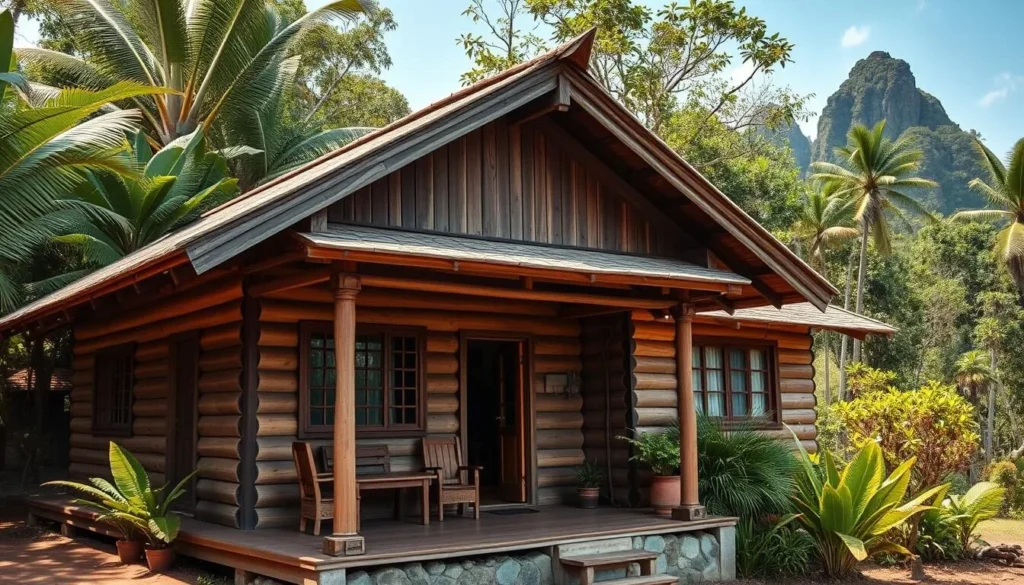
Top Attractions & Activities
Bantimurung-Bulusaraung National Park offers a diverse range of natural and cultural attractions. Here are the must-see highlights during your visit:
Bantimurung Waterfall
The park’s most famous attraction features a 15-20 meter cascade flowing over limestone rocks, creating a natural swimming area that’s popular with both locals and tourists. The slightly sloping waterfall creates a perfect photo opportunity, especially with colorful butterflies often fluttering nearby.
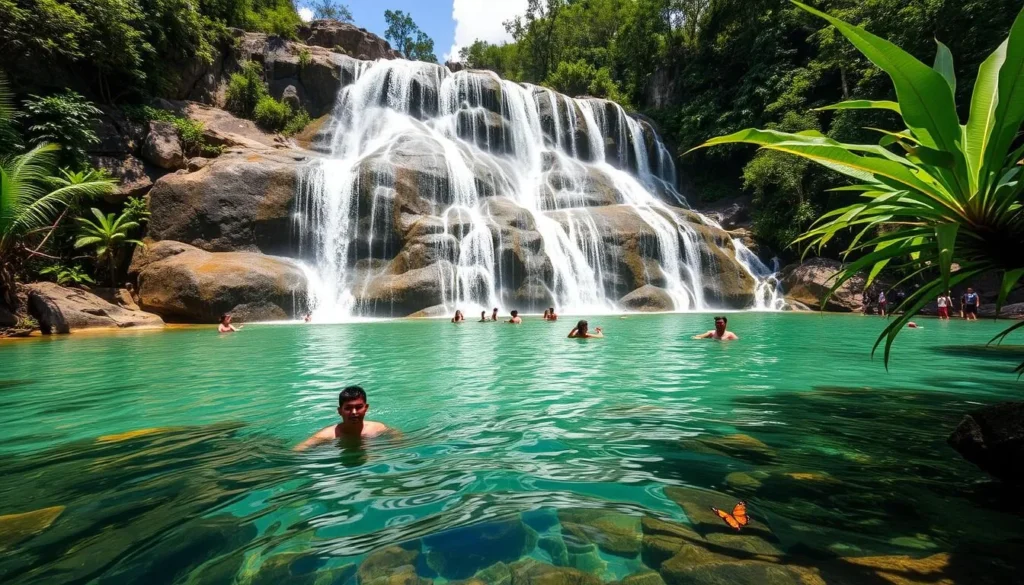
Visitor Tip: Bring water shoes for swimming as the rocks can be slippery. Early mornings offer the best butterfly sightings and fewer crowds.
Butterfly Watching
As the “Kingdom of Butterflies,” the park is home to hundreds of butterfly species, including rare and endemic varieties. The area around the waterfall is particularly good for butterfly spotting, especially in the morning hours when they’re most active.
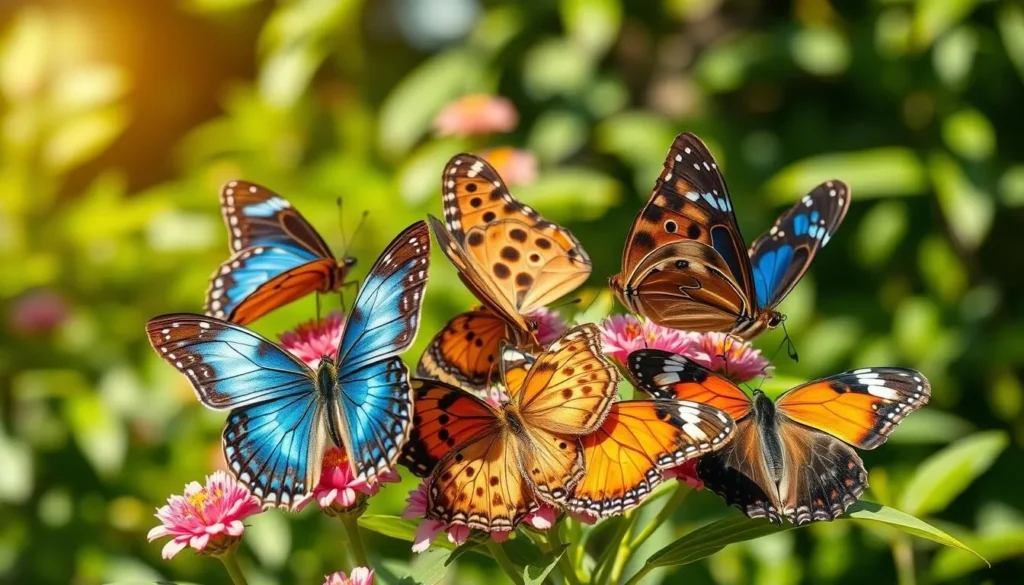
The park also features a small butterfly museum where you can learn about the different species and their life cycles. Local guides can help identify the various butterfly species you’ll encounter throughout the park.
Cave Exploration
The park features several fascinating caves worth exploring:
Dream Cave (Goa Mimpi)
This cave features impressive stalactite and stalagmite formations. Local guides can be hired at the entrance, and you’ll need to rent a lamp for the exploration.
Stone Cave (Goa Batu)
Another popular cave with unique rock formations. The cave requires some climbing and navigating through narrow passages.
Leang-Leang Prehistoric Caves
Located in a different section of the park, these caves contain ancient hand stencils and animal drawings dating back thousands of years, making them an important archaeological site.
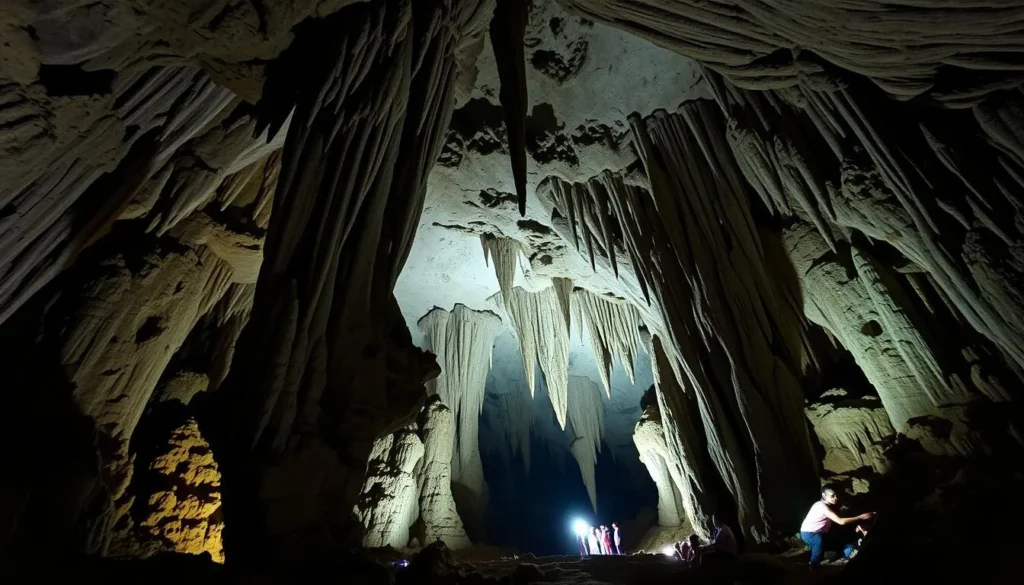
Safety Note: Always hire a local guide for cave exploration and bring proper footwear. Some caves require moderate physical fitness to navigate safely.
Wildlife & Nature
Beyond butterflies, Bantimurung-Bulusaraung National Park is home to diverse wildlife and unique ecosystems:
Endemic Species
The park protects several endemic Sulawesi species, including:
- Sulawesi Dwarf Cuscus
- Sulawesi Bear Cuscus
- Sulawesi Wrinkled Hornbill
- Sulawesi Taritic Hornbill
- Sulawesi Moor Macaque
- Sulawesi Palm Civet
- Tarsius (one of the world’s smallest primates)
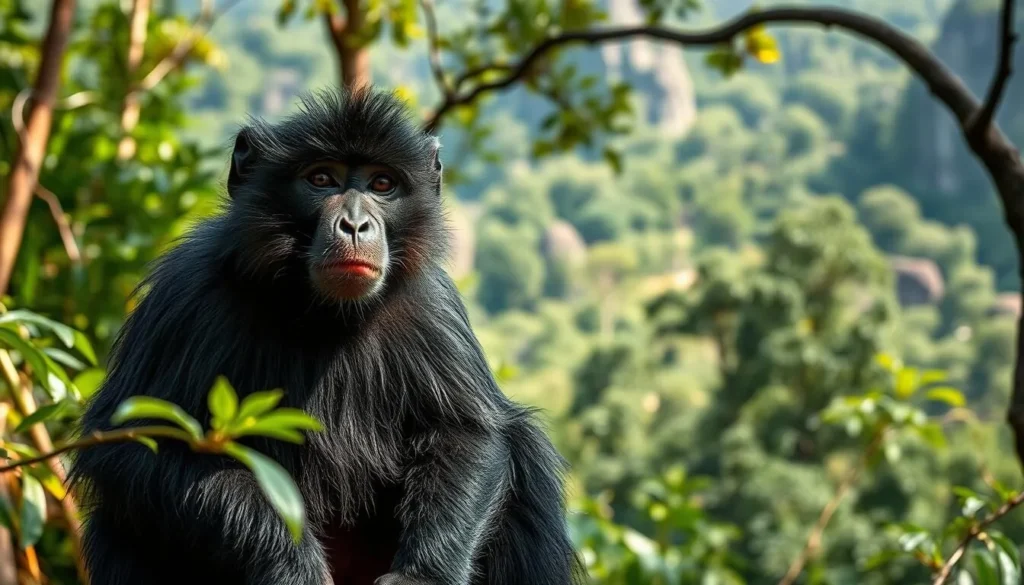
Karst Ecosystem
The park features one of Southeast Asia’s largest karst areas, with distinctive limestone formations, underground rivers, and unique flora adapted to this environment.
Birdwatching
Birdwatchers will enjoy spotting various species, including hornbills, kingfishers, and endemic Sulawesi birds. Early morning offers the best birdwatching opportunities.
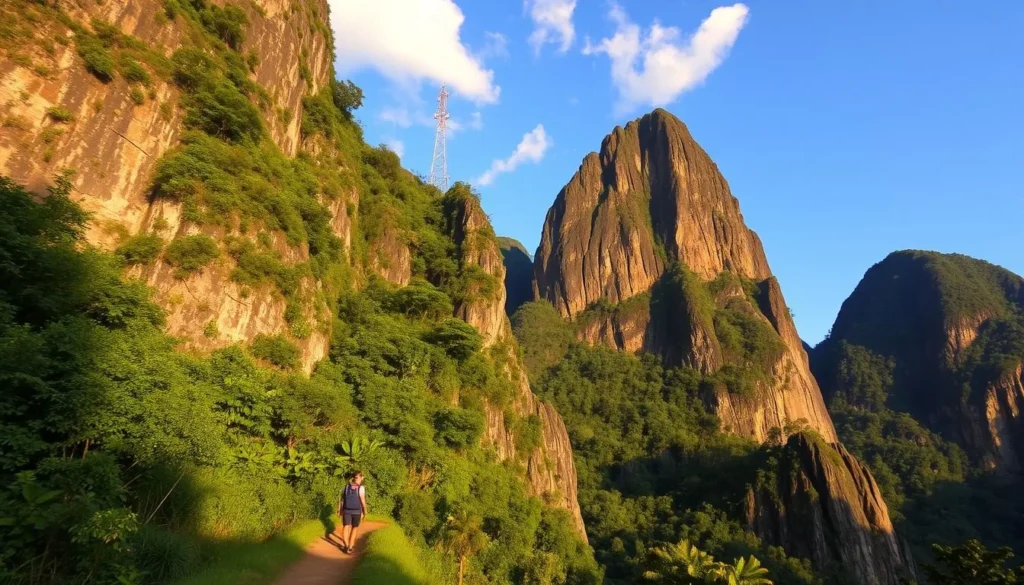
Hiking & Trekking
The park offers several hiking trails of varying difficulty levels:
Waterfall Trail
An easy 20-30 minute walk from the main entrance to Bantimurung Waterfall, suitable for all fitness levels.
Karst Mountain Trail
A moderate 2-3 hour trek through the forest and karst landscape, offering spectacular views of the surrounding area.
Cave Connection Trek
A challenging full-day adventure connecting several cave systems, requiring good physical fitness and a guide.
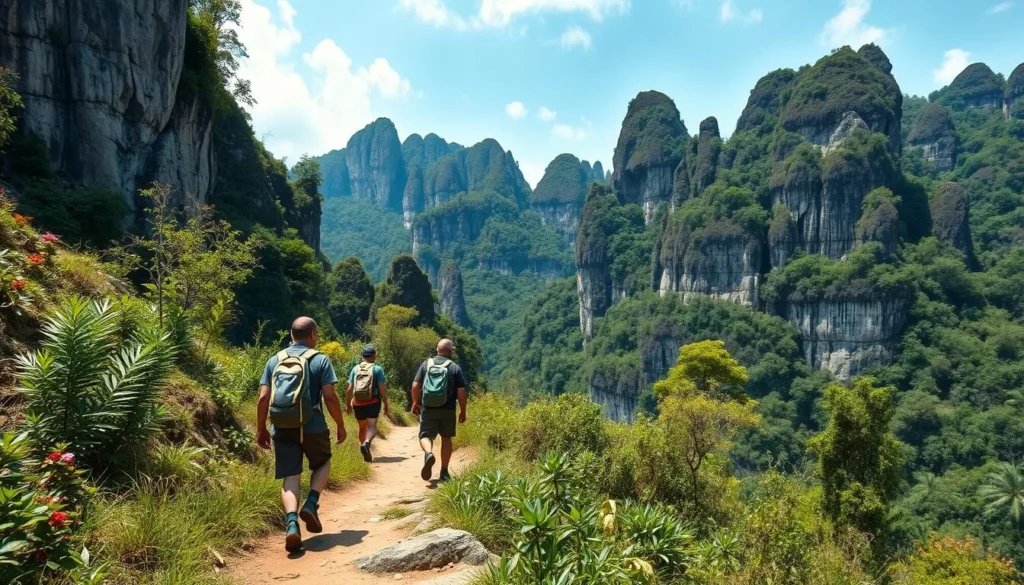
Trekking Tips: Wear sturdy shoes, bring plenty of water, and apply insect repellent. Consider hiring a local guide for longer treks to enhance your experience and support the local community.
Local Cuisine & Dining
While food options within the park are limited, you can enjoy local South Sulawesi cuisine in nearby areas:
Within the Park
Simple food stalls near the main entrance and waterfall area serve basic Indonesian dishes, snacks, and cold drinks. Prices are reasonable, but selection is limited.
Picnic Tip: Many local visitors bring their own food for picnics near the waterfall. This is permitted and can be a great way to enjoy the scenery.
Nearby Restaurants
In Maros town and along the main road to the park, you’ll find several small restaurants (warung) serving authentic South Sulawesi specialties:
- Coto Makassar – A rich beef soup with unique spices
- Konro – Beef rib soup with black nut sauce
- Pallubasa – Spicy beef soup with egg and coconut milk
- Pisang Epe – Grilled pressed bananas with palm sugar
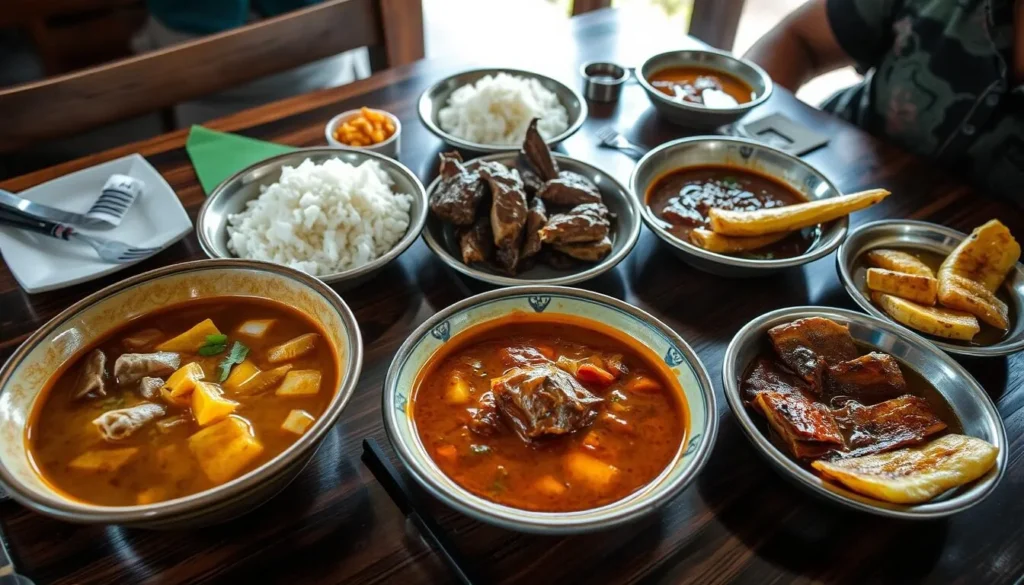
Practical Travel Tips
What to Bring
- Comfortable walking shoes or hiking boots
- Water shoes for swimming areas
- Insect repellent and sunscreen
- Light, breathable clothing
- Rain jacket or poncho (especially during wet season)
- Reusable water bottle
- Camera with waterproof protection
- Small backpack for essentials
Local Etiquette
- Dress modestly, especially when visiting local villages
- Ask permission before photographing local people
- Remove shoes when entering homes if invited
- Don’t litter – carry out what you bring in
- Respect wildlife and don’t disturb natural habitats
Safety Considerations
- Stay on marked trails when hiking
- Hire local guides for cave exploration
- Be cautious when swimming as there are no lifeguards
- Bring basic first aid supplies
- Keep valuables secure or leave them at your accommodation
Guided Tours & Experiences
While it’s possible to explore the park independently, guided tours can enhance your experience by providing local knowledge, handling logistics, and accessing less-visited areas.
Day Tours from Makassar
These typically include transportation, entrance fees, and guided visits to the main attractions like Bantimurung Waterfall and butterfly areas.
Duration: 6-8 hours
Best for: First-time visitors with limited time
Caving Adventures
Specialized tours focusing on exploring the park’s cave systems with proper equipment and experienced guides.
Duration: 4-6 hours
Best for: Adventure seekers and geology enthusiasts
Cultural & Nature Combo
These tours combine park highlights with visits to nearby traditional villages for a more comprehensive experience.
Duration: Full day
Best for: Travelers interested in both nature and local culture
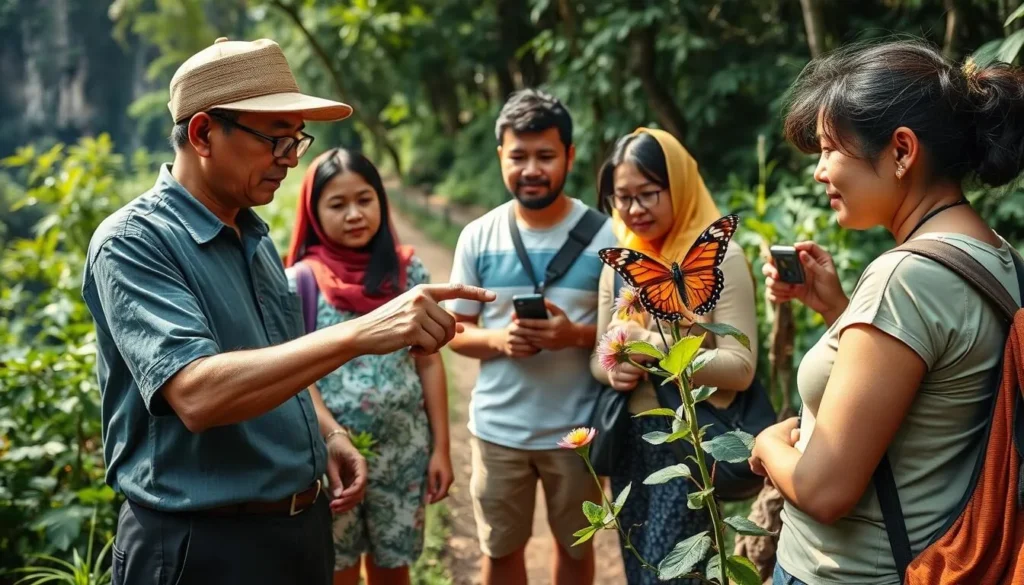
Plan Your Unforgettable Adventure
Bantimurung-Bulusaraung National Park offers a perfect blend of natural beauty, biodiversity, and cultural heritage that makes it one of South Sulawesi’s most treasured destinations. From the mesmerizing flutter of colorful butterflies to the majestic limestone karst formations and refreshing waterfalls, this park provides experiences that will stay with you long after your visit.
Whether you’re an adventure seeker looking to explore mysterious caves, a nature enthusiast eager to spot endemic wildlife, or simply someone seeking a peaceful retreat in a stunning natural setting, Bantimurung-Bulusaraung has something special to offer. Start planning your journey today and discover why this remarkable park continues to captivate travelers from around the world.
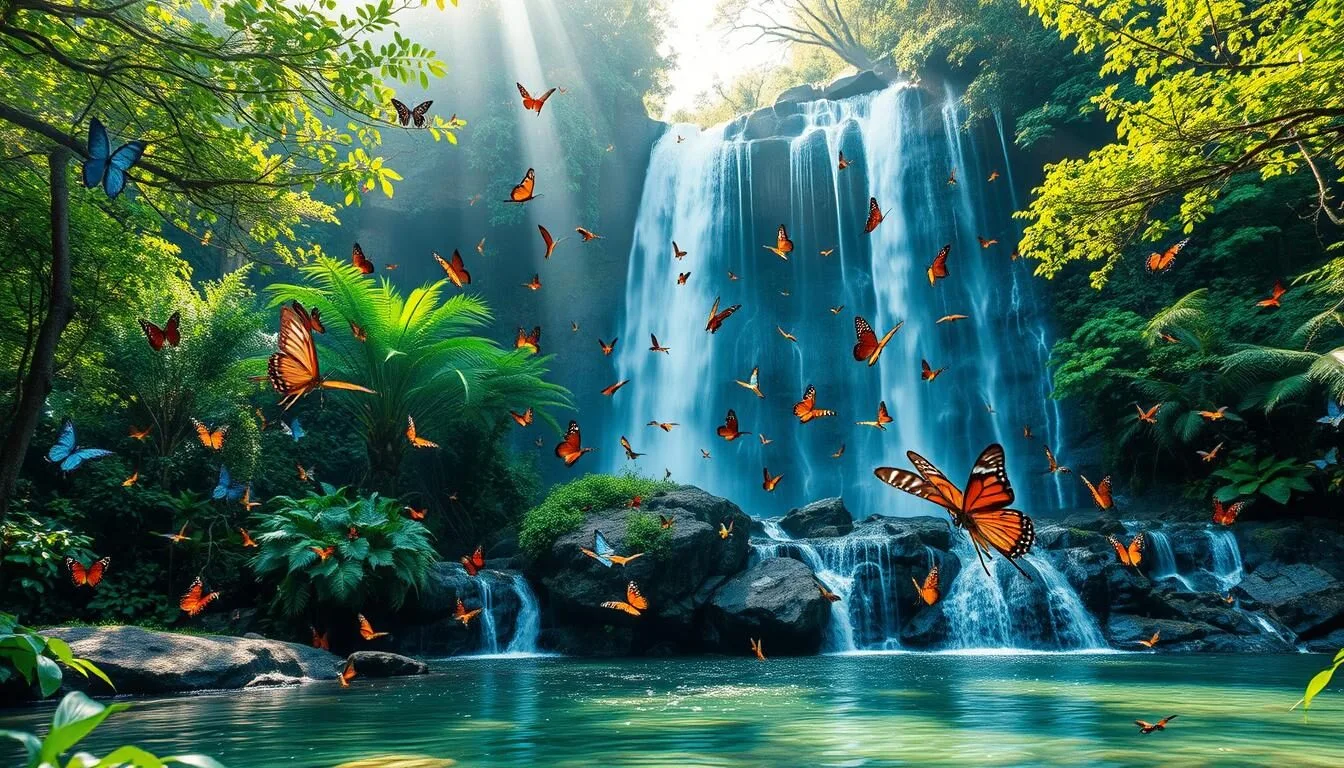
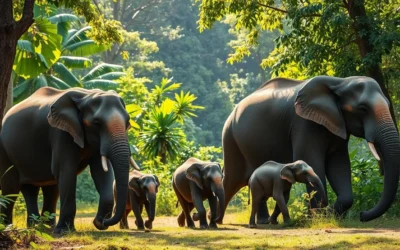
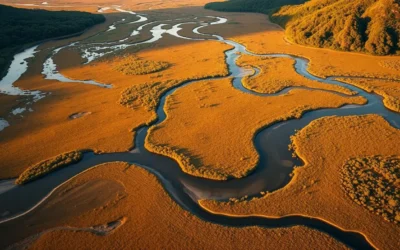
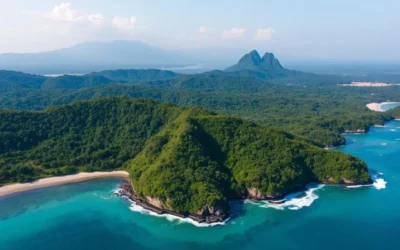
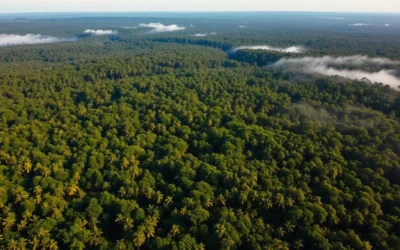
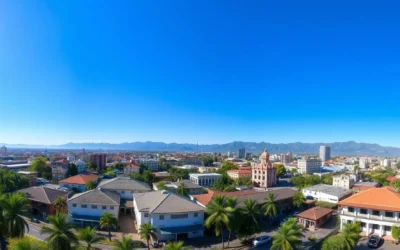
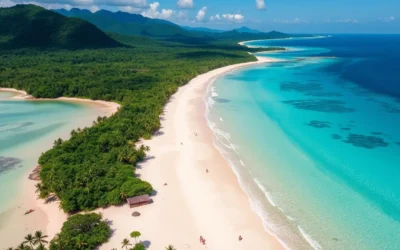
0 Comments